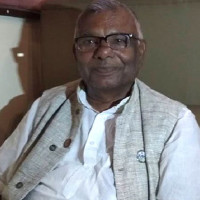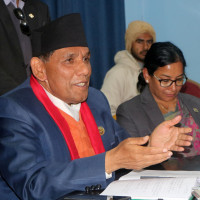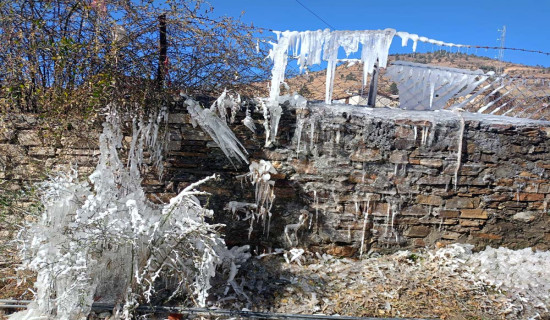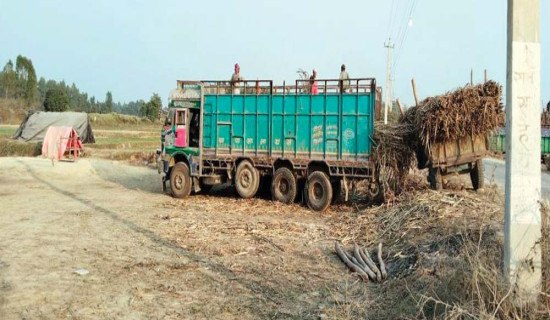- Thursday, 26 December 2024
Democracy Day
Hurdles To Thriving Democracy
Nepal's path to democracy has been marked by success, disappointments, and ongoing challenges and struggles. From the removal of the monarchy to the adoption of a federal, republican, and democratic constitution, Nepal has taken significant steps towards establishing itself as a democratic and pluralist society. It is encouraging to see that the country's inclusive and participatory political system has garnered international praise and recognition; nonetheless, challenges to strengthening hard-earned democracy remain.
We must never forget that a healthy democratic society anticipates good governance, the rule of law, and the protection of human rights. It also aims to encourage and safeguard free expression, the right to live and work, and the freedom to follow any ideology or belief of one's choosing. It also seeks to foster multi-party politics and a pluralistic society in which people can elect their representatives through the ballot.
Discrimination
All of our government's efforts and activities must aim at accomplishing the universally accepted principles of democracy, which always serve the best interests of sovereign citizens, who must receive all public services without bias or prejudice. A citizen in a democratic nation should not be the subject of any discrimination in getting government services and enjoying constitutionally guaranteed rights based on their caste, faith, gender, or area, as equal rights are the hallmark of a true democracy. Now, certain individuals and regions feel they are being discriminated against simply because they do not support particular leaders or adhere to the ideologies and diktats of political parties in power, which must not be the case in a democracy.
Several unwarranted events have occurred in our country, endangering democratic norms and values. Political instability, driven by frequent transitions in governments, has led to a growing culture of impunity and corruption. Political leaders' involvement in corrupt practices and abuse of authority, the nexus between corporations, politicians, and bureaucracy, nepotism, and inaction over service delivery are usually identified as important impediments to democratic consolidation. All of these widely publicised events have posed challenging questions: why did leaders and parties work so hard to bring about change in the nation? Were these changes intended to allow them to engage in inappropriate behaviours that undermine democratic achievements?
In recent years, the country has been rocked by major scandals stemming from corrupt acts by politicians, powerful entrepreneurs, and bureaucrats alike. Despite a vociferous demand from the general public, civic society, and the press for the prosecution of corrupt individuals, the law has remained ineffective in dealing with offenders and corrupt individuals who have walked free due to their ties with the powerful.
A lack of good governance and a scarcity of opportunities at home have frustrated both our youth and common folks alike. The rise of new political forces and some groups calling for a return to monarchy are testaments to frustration. A substantial number of frustrated youths and others have left the country, raising concerns about the future well-being of the country.
A country that is now dealing with a major exodus of young people who form a significant workforce cannot carry out economic and productive activities and thus will have a difficult time having good economic status, which is required to build a vibrant democratic nation.
Polarisation
Worse, famous leaders and political parties have frequently failed to deal appropriately with such said situations. Instead of righting their wrongs, they are willing to go to any extent to protect their own interests, further irritating citizens. While influential politicians and decision-makers' apathy towards serving people and the nation's interests is concerning, the polarisation of politics and society has created additional concerns about the future of our hard-won democracy.
Similarly, a lack of strong law enforcement mechanisms to tackle corruption and crime, as well as an ineffective and weaker legal system, have disappointed people who want to see democracy take firm root in the country. A strong and independent judicial system is the last resort for all victims of oppressors and powerful authoritarians. Currently, the entire judiciary is under fire for failing to bring powerful and wealthy offenders to justice. Sometimes those who work within our legal system convey the appearance that they have not protected the system's purity, undercutting the basic idea that the judiciary functions best when it is autonomous. An independent judiciary is one of the foundations of a democratic society. In short, the absence of a strong court weakens the principles, values, and spirit of democracy.
All these unwarranted episodes in the country have encouraged groups of people seeking to restore monarchy in any form, whether constitutional or cultural, by repealing the current constitution, which was enacted by the Constituent Assembly in 2015 to establish Nepal as a democratic federal secular republican state. When the constitution was enacted, it aimed to address the long-standing grievances of marginalised people, end discriminatory practices, offer inclusive governance, and decentralise power to the provincial and municipal levels to empower people at all levels.
Following the constitution's implementation, there were obstacles such as ethnic clashes, territorial disputes, and issues with the devolution of power and resources to provinces and local governments. However, the country has now accomplished many of the objectives specified in the constitution, which has proven to be a vital document. Beside accomplishing several goals, the constitution is significant for including all democratic values in its preamble, which implies that no party can change them without a two-thirds majority in parliament.
No one would deny that if our constitution and democracy fail, it will be due to the irresponsible actions and performances of politicians and their parties, who routinely undermine democratic norms and ideals. Some noteworthy leaders have frequently displayed a predisposition to verbally embrace democratic norms and spirits, but when it comes to acting in the best interests of democratic principles and spirits, they fall short.
Meanwhile, foreign relations experts emphasise that a democratically vibrant country may provide a good example for its neighbours for achieving stability in the region. Though many people applaud Nepal's relatively peaceful transition from a unitary to a federal system of government, others criticise our politicians and parties for failing to maintain balanced relations with its two larger, more powerful neighbours and other countries.
Weak Leadership
Similarly, Nepal's voice in international forums has weakened in recent years as a result of its reckless and weak leadership, which has been inconsistent in taking strong independent positions on topics of international importance. What is more bothersome is that international power centres frequently take advantage of our weaker status to interfere in our internal affairs. Some analysts believe that certain power centres do not want Nepal to be a dynamic, democratic country that empowers its population.
Our democracy faces numerous challenges, despite the fact that it was established through arduous struggles and efforts. Our political leadership's negligence and the lacklustre performance of our judicial system have the potential to destablise our democratic system of governance. Here, the media, civil society, and the general public may act as vital components in exerting pressure on our political leadership and judicial stakeholders to act in accordance with democratic ideals and principles in order to sustain and develop Nepal as a full-fledged democratic society. All stakeholders in democracy must thus embrace democratic ideals in true spirit without seeking self-serving interests, enabling Nepal to achieve good governance, peace, stability, and prosperity, which are prerequisites for a thriving democracy.
(Upadhyay is the former managing editor of this daily.)















